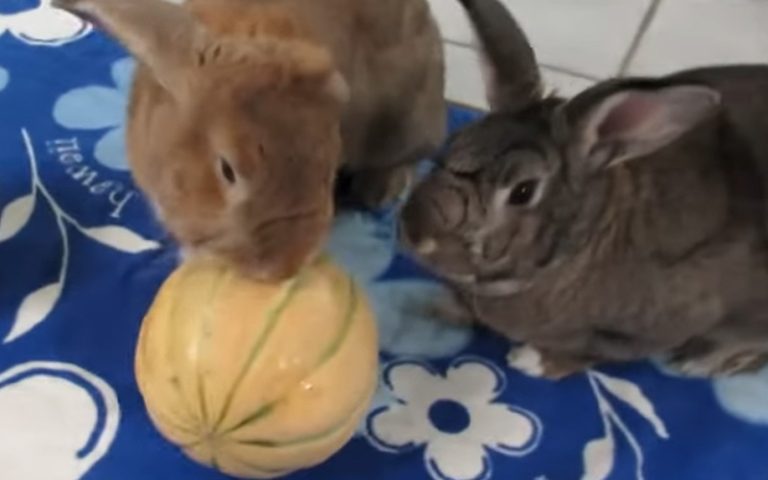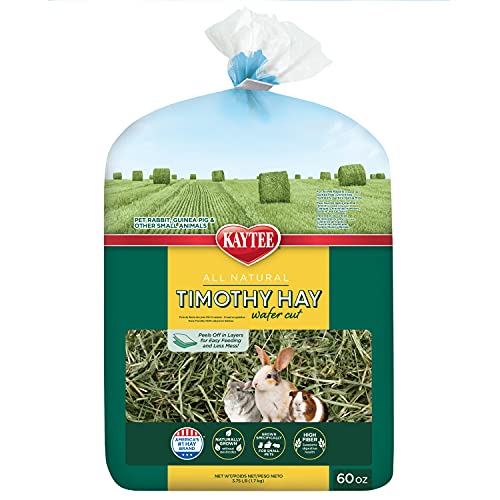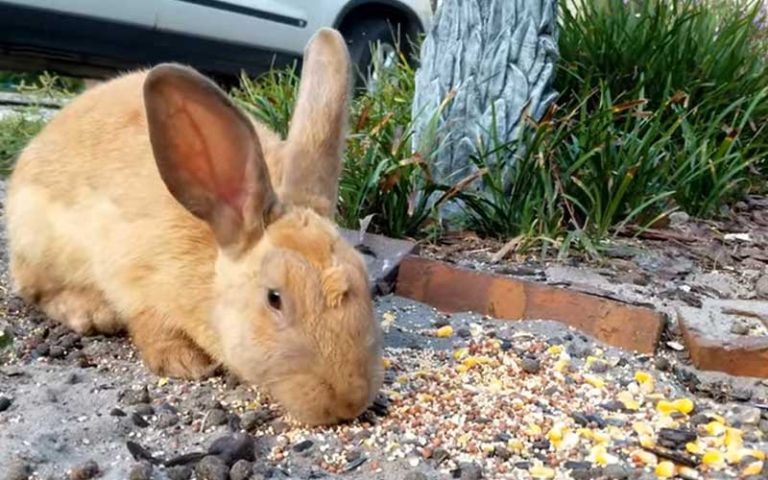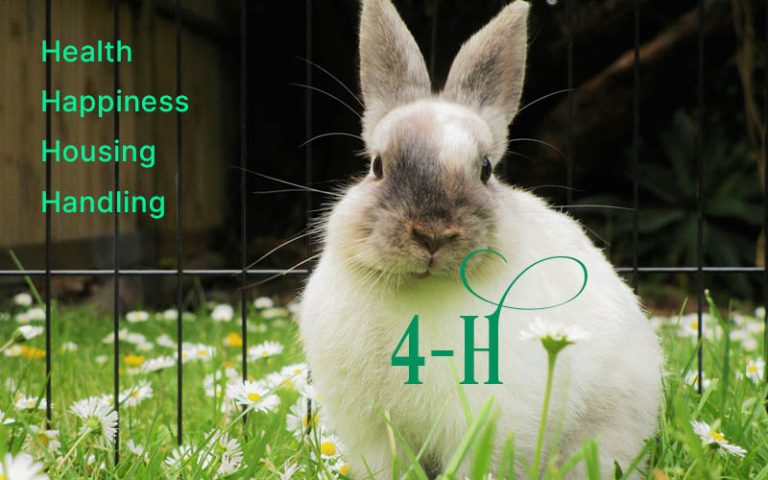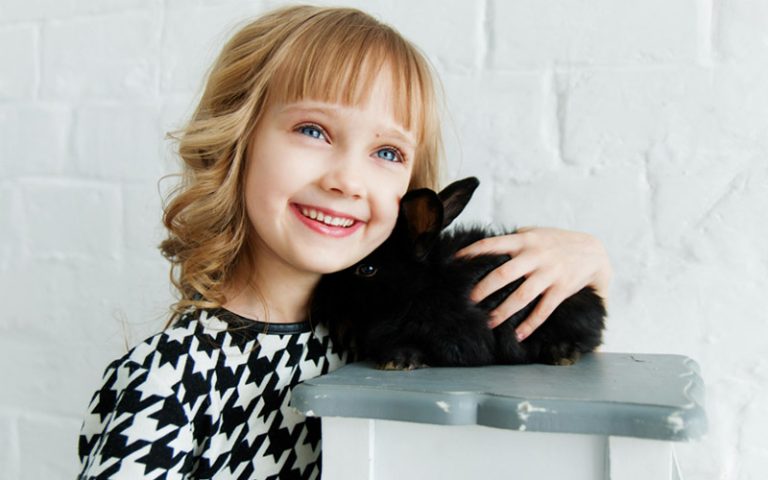How Long Can A Rabbit Go Without Eating? [12 To 24 Hours]
A rabbit can survive for about 12 to 24 hours without eating. Also, a rabbit can survive for about three to five days without eating.
During this time, it relies on its stored body fat for energy. However, prolonged periods without food can lead to severe health issues and even death. It’s crucial to provide them with a consistent supply of fresh hay, vegetables, and pellets to maintain their health.
In addressing the central question, know the specifics of how long can a rabbit go without eating. Gain insights into the signs indicating potential issues and steps to take if your rabbit’s eating habits raise concerns.
Is Fasting Normal for Rabbits?
Fasting is not normal for rabbits. Rabbits are herbivores with a digestive system that requires a constant intake of fiber-rich food, such as hay, to maintain proper gut function.
Rabbits have a unique digestive process where they produce two types of feces: hard, dry pellets and soft cecotropes, which are rich in nutrients and are usually consumed directly from the anus.
If a rabbit goes without food for an extended period, it can lead to serious health issues, including gastrointestinal stasis. Which is a potentially life-threatening condition where the digestive system slows down or stops.
Lack of food can disrupt the normal functioning of the rabbit’s digestive tract, leading to the formation of hairballs, dehydration, and other complications.
How Long Can a Rabbit Safely Go Without Eating?
Short-Term Fasting:
Under normal circumstances, a healthy rabbit can endure a short-term fasting period of around 12 to 24 hours without adverse effects. However, it is crucial to monitor them closely during this period, ensuring they have access to fresh water.
Extended Periods of Fasting:
While rabbits are resilient, extended periods without food can lead to severe health issues. Prolonged fasting may result in gastrointestinal stasis, a condition where the digestive system slows down or halts, potentially leading to life-threatening complications.
Why is Your Rabbit Not Eating for a Long Time?
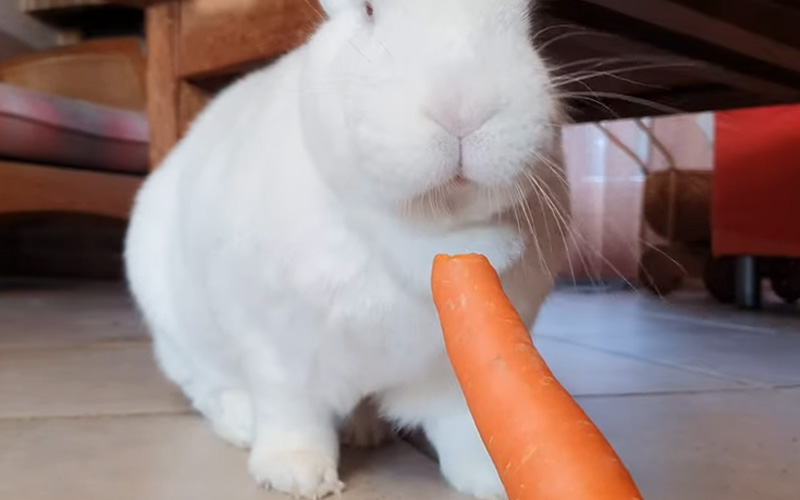
Understanding how long a rabbit can go without eating requires consideration of various factors. These include age, breed, health status, and environmental conditions.
1. Age Matters
Tailoring a rabbit’s diet to its age is crucial for rabbits. Just like humans, young rabbits, known as kits, have faster metabolisms and increased energy needs. As these furballs grow, their dietary requirements evolve. Kits thrive on frequent, nutrient-packed meals to support their rapid development. As rabbits mature into adults, adjusting their diet ensures they maintain optimal health.
2. Breed Matters
Rabbit breeds vary widely in size and metabolism, directly influencing their dietary needs. Smaller breeds demand more frequent meals, ensuring their energy levels remain steady. Larger breeds, on the other hand, can endure slightly longer fasting periods.
3. Health Status
A rabbit’s health directly affects its ability to skip meals without adverse effects. If your furry friend is facing health issues such as sickness, dental problems, or gastrointestinal concerns, its ability to endure fasting periods diminishes. Keep a vigilant eye on your rabbit’s overall health – any signs of illness may reduce its capacity to go without eating.
4. Environmental Conditions
Extreme temperatures, whether too hot or too cold, directly impact your rabbit’s metabolism. In scorching heat, rabbits may struggle to regulate their body temperature, necessitating adjustments in their feeding routine. On the flip side, chilly conditions may also affect their metabolic rate.
What to Do If Your Rabbit Stop Eating for A Long Time?
If your rabbit stops eating for a prolonged period, it’s crucial to take action promptly as it could indicate a serious health issue. Here’s what you can do:
- Monitor Closely: Keep a close eye on your rabbit’s behavior and symptoms. Note any changes in activity level, stool production, or signs of discomfort.
- Consult a Veterinarian: Schedule an appointment with a rabbit-savvy veterinarian as soon as possible. Rabbits have delicate digestive systems, and prolonged periods without eating can quickly lead to serious health complications such as gastrointestinal stasis.
- Offer Fresh Hay and Water: Ensure your rabbit has access to fresh hay and water at all times. Hay is crucial for a rabbit’s digestive health and helps keep their gut moving.
- Try Offering Palatable Foods: If your rabbit refuses to eat hay or pellets, try offering fresh, leafy greens like cilantro, parsley, or dandelion greens. Avoid sugary fruits or vegetables high in starch, as these can upset their digestive system.
- Encourage Exercise: Encourage gentle exercise to help stimulate your rabbit’s digestive system. Provide space for hopping and exploring, but avoid strenuous activity if your rabbit is unwell.
- Maintain a Comfortable Environment: Ensure your rabbit’s living environment is comfortable, with appropriate bedding, temperature, and hiding spots for security.
- Administer Medication as Prescribed: If your veterinarian prescribes medication, follow their instructions carefully. Administer medications on time and complete the full course as prescribed.
- Syringe Feeding: In severe cases where your rabbit refuses to eat anything, your veterinarian may recommend syringe feeding critical care formula. This should only be done under veterinary guidance to avoid aspiration or further complications.
- Avoid Stress: Minimize stress as much as possible. Loud noises, sudden movements, or changes in routine can stress a rabbit, further affecting their appetite and overall health.
Ensuring a Balanced Diet for Your Rabbit
A well-rounded diet is the cornerstone of a rabbit’s health. Here are essential components to include in their daily meals:
High-Quality Hay
Quality hay forms the backbone of a rabbit’s diet, crucial for their overall health. Opt for varieties like Timothy hay, orchard grass, or meadow hay—these act as a powerhouse of essential fiber, aiding digestion and preventing potential dental issues.
Hay also satisfies your rabbit’s instinct to graze, promoting a healthy chewing habit. Ensure a steady supply of fresh, high-quality hay daily, as it not only supports dental health but also contributes to overall happiness.
Fresh Vegetables
Nourishing your rabbit with a vibrant array of fresh vegetables is a vital component of their well-balanced diet. These crunchy, leafy delights not only add a burst of color to your furry friend’s meals but also pack a punch of essential nutrients.
Kale, romaine lettuce, and cilantro are excellent choices, providing a medley of vitamins and minerals crucial for overall health.
Pellets
Rabbit pellets, those small, nutrient-rich bites, are the unsung heroes of your bunny’s diet. Packed with essential vitamins and minerals, these bite-sized wonders provide a concentrated dose of nutrition to keep your furry friend hopping with vitality.
Take high-quality rabbit pellets to ensure your pet receives a balanced blend of nutrients, supporting their overall health. These convenient bites, usually containing a mix of hay, grains, and essential additives, complement the rabbit’s diet, offering a convenient and tasty way to meet their dietary needs.
Fresh Water
Providing your rabbit with a constant supply of clean, fresh water is akin to offering them a lifeline for optimal health. Hydration is key to their well-being, facilitating proper digestion and nutrient absorption.
Ensure your furry friend always has access to a water source, and regularly check that the water is clean and free from contaminants. This simple yet crucial step plays a vital role in preventing dehydration and supporting overall vitality.
FAQ
Bunnies can survive for about three to four days without water. However, it’s crucial to provide them with a freshwater supply daily to ensure their well-being. Dehydration can lead to serious health issues for these furry friends.
If your rabbit won’t eat, try offering fresh veggies, hay, and pellets. Check for dental issues, ensure a clean environment, and provide plenty of water. If the problem persists, consult a vet for a thorough check-up.
To prevent gastrointestinal stasis in your rabbit, ensure they have a fibrous diet with plenty of hay. Encourage regular exercise to keep their digestive system active. Provide fresh vegetables and limit high-carb treats. Keep them hydrated with clean water. If you notice any signs of distress, consult a vet promptly. Regular check-ups are crucial for your rabbit’s health.
Rabbits should steer clear of certain foods to stay healthy. Avoid feeding them chocolate, onions, garlic, and iceberg lettuce as they can be harmful. Also, limit their intake of high-sugar fruits and veggies.


